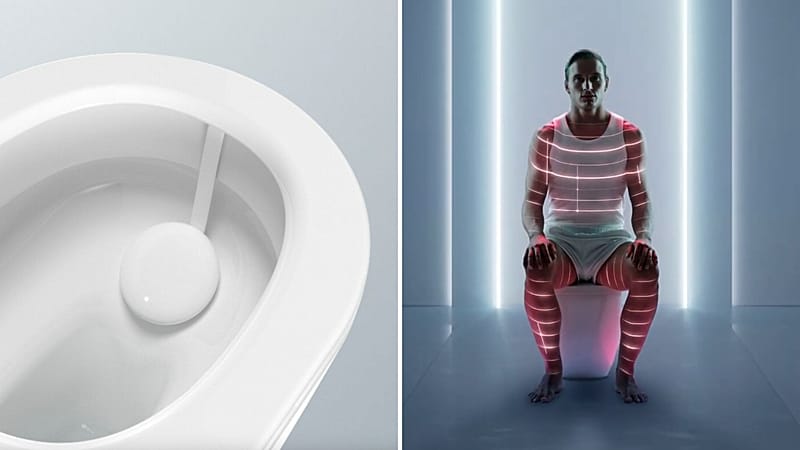This new urine health scanner lets you analyse your pee at home - but it doesn’t come cheap

You can already track your sleep, your steps and your heart rate - but now your toilet wants in on the action.
A new smart urine scanner, described as a first of its kind, promises to turn your morning pee into a health report, analysing what you flush away for clues about your hydration, nutrition and even kidney health.
The U-Scan, developed by French technology company Withings, sits discreetly inside your toilet bowl, sending results within minutes straight to an app.
How the device works
The device, which first appeared as a prototype in 2023, uses a replaceable cartridge to measure chemical markers such as pH, specific gravity, ketones and vitamin C.
The company says these readings can provide insight into hydration, nutrition and fat metabolism, and even help users on weight-loss drugs track changes in their diet.
Urine is rich in biological data. Researchers have catalogued over 3,000 metabolites across human urine samples.
Withings offers two cartridges for the U-Scan. The Nutrio cartridge focuses on nutrition, measuring urinary pH, specific gravity, ketones, and vitamin C. By contrast, the Calci cartridge is aimed at kidney health. It tracks calcium, pH, and specific gravity, helping to identify trends that could indicate a risk of kidney stones.
Peeing at a price
However, the device does not come cheaply.
In the United Kingdom, Withings is selling two versions of the device: the Proactive package, which costs around £320 (€275), and the Intensive package, priced closer to £390. Both include the core U-Scan unit - a small puck-shaped scanner that clips inside the toilet bowl – and one or two disposable “cartridges” that last for roughly three months.
Once those cartridges run out, the user must buy replacements. In the United States, each cartridge costs about $100 (€85), or $180 for a pair, depending on how often you test.
Under the Proactive plan, the company recommends two to four analyses per week, while the Intensive option runs nearly every day.
Today

